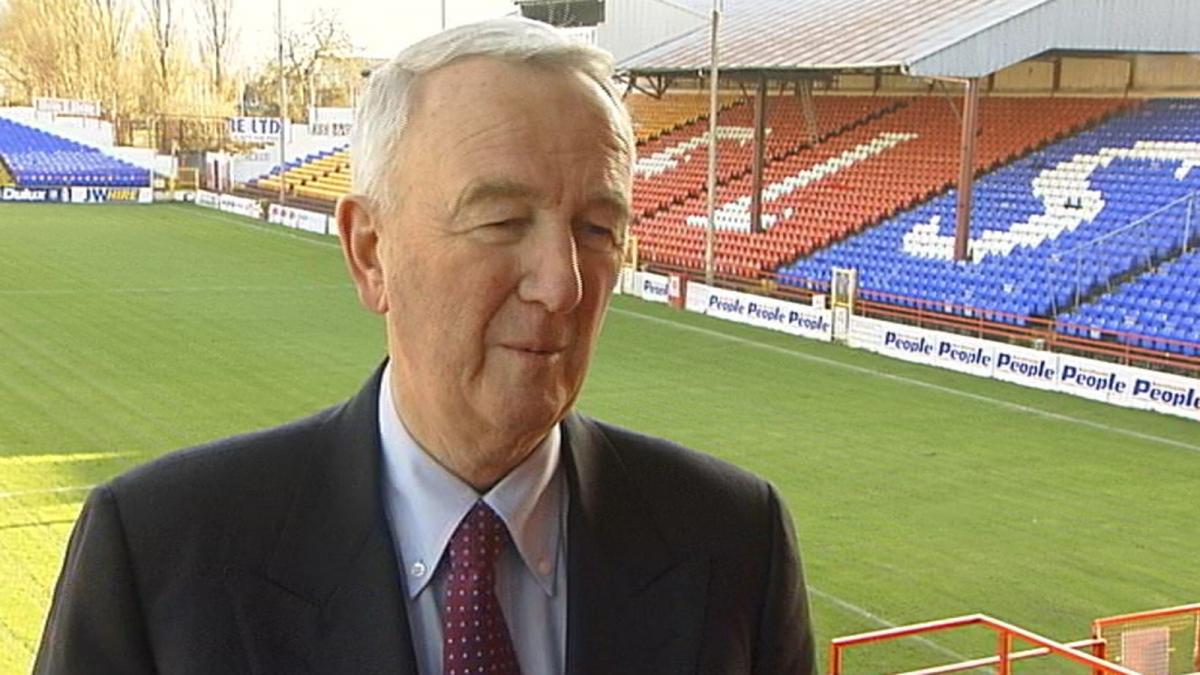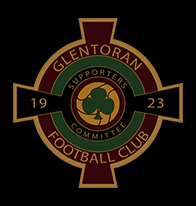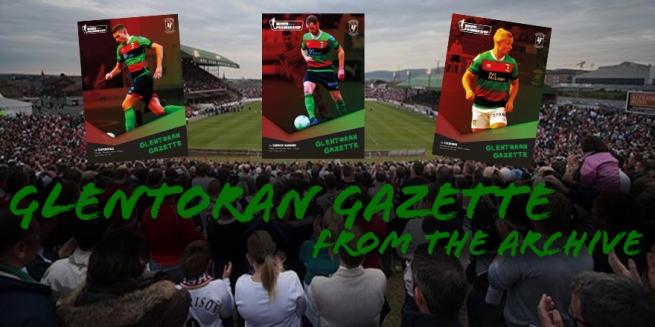
THE BOY FROM THE BLACK STUFF
The fourth of Brian McClelland's compelling series of articles on significant figures from Glentoran's history. Many thanks to the Glentoran Supporters Committee (1923) for use of this material.
Now here’s an interesting pub quiz question for all you budding quizmeisters: Who was the Glentoran goalkeeper who became managing director of Guinness Dublin, then chairman of the Republic of Ireland’s Labour Court, played professional football in Wales, Scotland, the Republic of Ireland and Northern Ireland and eventually became chairman of Shelbourne Football Club? In essence, this is a rags to riches story of an inner-city Dublin boy who made good.
Dim memories stirred when I saw that old local newspaper cutting from the 1994. The story therein explained that Linfield and Dublin club, Shelbourne, were taking one thousand cans of Guinness on a plane they were sharing to the former Soviet Union. Linfield were bound for Tiblisi in Georgia while Shelbourne were set to play Parpary Lvov in the Ukraine.
Mr Finbarr Flood, managing director of Guinness Dublin and a director of Shelbourne, said that the authorities in Georgia and the Ukraine had contacted the company about the possibility of sending cans of the black stuff to both countries.
Finbarr Flood? Finbarr Flood? Surely there couldn’t be TWO Finbarr Floods in this world never mind on this island? It sounds like the name of a character straight out of the pages of a James Joyce novel. It is a truly magnificent name. Was this the same Finbarr Flood I had seen playing goalkeeper for the Glens way back in 1963? There was only one way to find out! A quick phone call to Mr Flood’s office in Dublin was answered by his friendly secretary.
“May I speak to Mr Flood, please?” I enquired, innocently.
“Sure, he’s abroad on holiday,” came the quick response.
“Tell me,” I stumbled, feeling slightly foolish, “Did he ever play football for Glentoran in Belfast?”
Much to my relief she politely confirmed that Mr Flood had most certainly been a goalkeeper of some repute for Shelbourne and Greenock Morton, but that Glentoran was a new one as far as she was concerned. Ho ho, I chortled to myself, the bold Finbarr has been keeping his time at the Oval a dark secret from those close to him. She kindly promised, however, to have Mr Flood give me a call on his return.
The call duly came two weeks later. Taking the bull by the horns I put it to him straight – “Finbarr, tell me, did you ever play for Glentoran? “After a few seconds pause came the seeming reluctant admission that he was indeed the same Finbarr Flood who had been signed by Glentoran from Greenock Morton back in 1963.
It was at a time when Glentoran were between goalkeepers, so to speak. The brilliant Roy Rea, Ulster’s Footballer of the Year at the end of the previous season, had departed for Canada where he had quickly earned rave notices with the Canadian side, Italia. Glentoran manager, Isaac McDowell, was reluctant to thrust his young and inexperienced prospect, Albert Finlay, into the spotlight, so Finbarr Flood was bought with the intention of grooming big Albert in the Seconds.
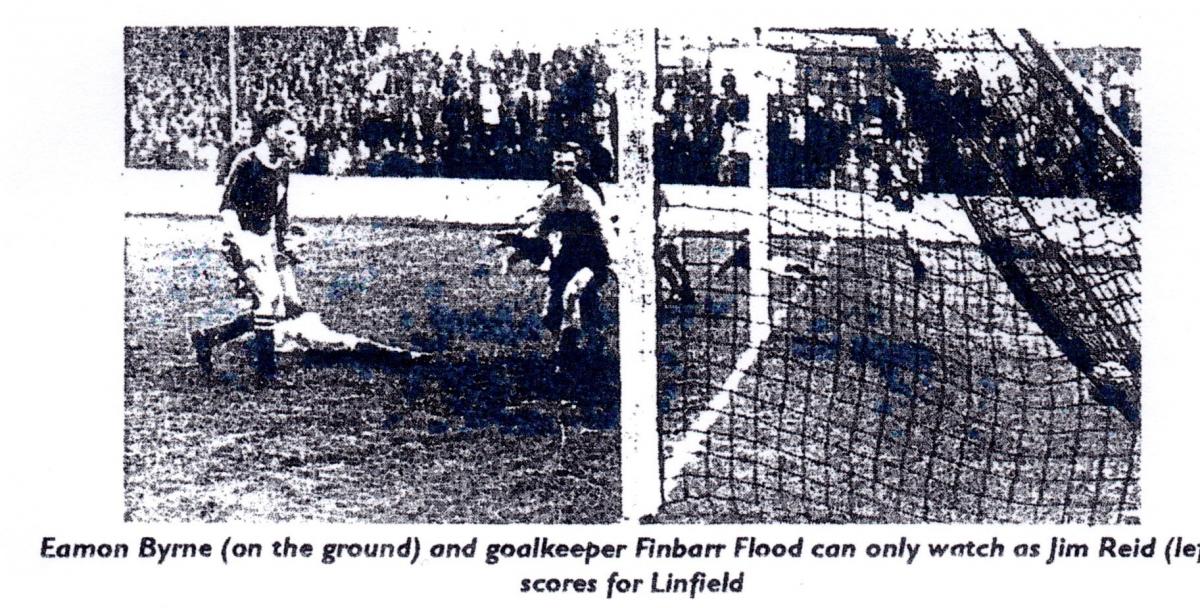
Finbarr was, undoubtedly, an experienced ‘keeper. He had played for Holyhead in Wales, Shelbourne in Dublin (winning a FAI cup medal in 1960) and Morton in Scotland before arriving at the Oval. “But of all the clubs I ever played for, Glentoran got least value for money,” he confessed to me.
“It was a very difficult period for my wife and myself,” Finbarr revealed. “My wife had given birth to a stillborn baby and was unhappy about me leaving every Saturday to play football in the North. My travel companion on the train to Belfast was Eamon Byrne, Glentoran’s centre half. It was around the time of President Kennedy’s assassination. Such was the global impact of the tragedy that Eamon and I pondered on how inappropriate it was to be playing football when the whole world was overshadowed by the magnitude of the death in Dallas, Texas.”
Finbarr made his Glentoran debut on 31st August 1963 in a 3-1 victory over Ards at the Oval. In the “Saturday Night” Malcolm Brodie, never one to mince his words, reported that the game was so boring that the band of the Irish Guards, led by their wolfhound mascot, received more applause that the players.
Worse was to come. The following Saturday Linfield hammered the Glens 5-1 in the City Cup at the Oval. Three of the Linfield goals came in the final three minutes as the flood gates opened (if you will pardon the expression). Flood did not have a good game and was heavily criticised in the local press. It came as no surprise when Finbarr found himself dropped in favour of the youthful Albert Finlay.
Finbarr returned to the team on 19th October, saving a penalty kick in a 2-0 defeat of Ballymena. Incidentally, the penalty taker for Ballymena was Jack McDowell, son of Glentoran manager, Isaac. Flood kept another clean sheet in his last game for the Glens in a 2-0 win against Coleraine. It is worth mentioning some of the fine players in that Glentoran team: Harry Creighton, Eamon Byrne, Walter Bruce, Eric Ross, Richie Warburton, Trevor Thompson and Sammy Pavis.
Ample revenge was gained towards the end of the season for that defeat by Linfield when the Glens notched up an unbelievable 8-1 away victory in the league over the Blues. Big Trevor Thompson scored four goals in what was Glentoran’s first competitive triumph at Windsor Park for seventeen years.
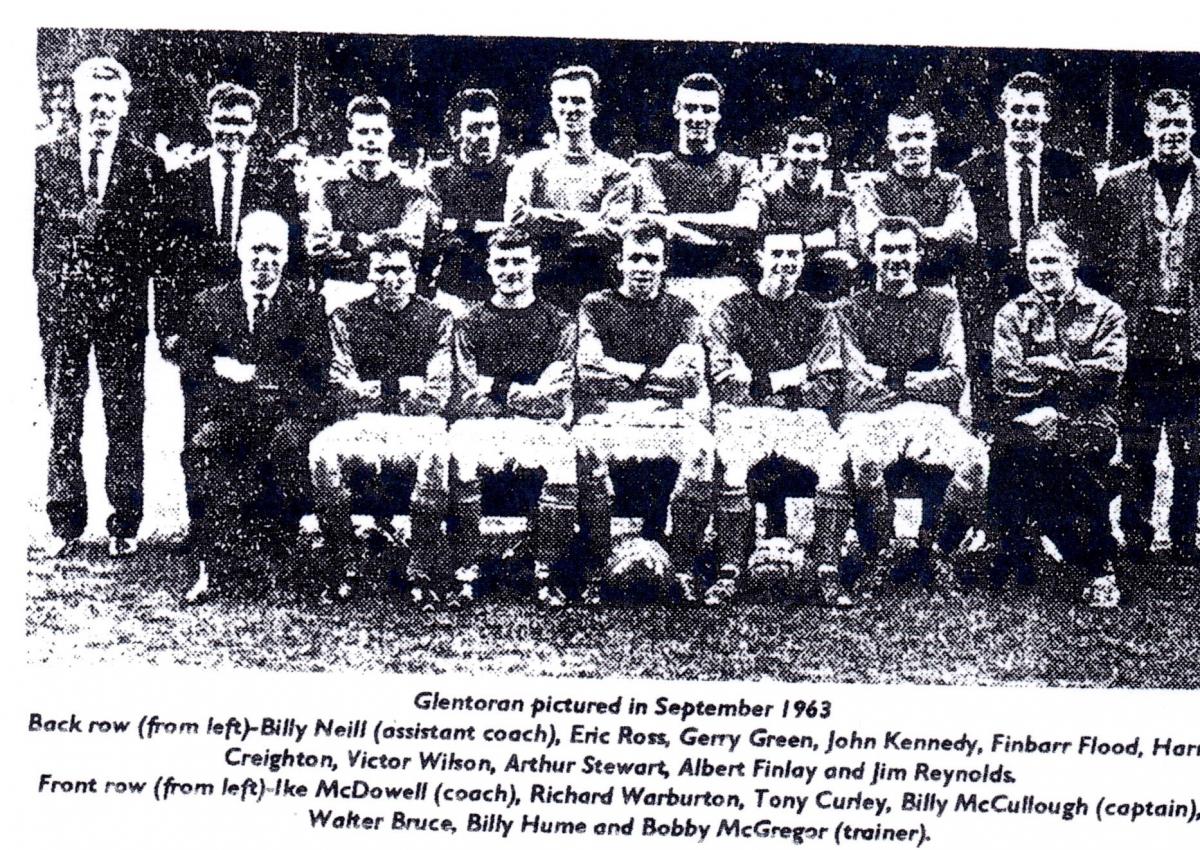
Finbarr’s playing days ended with Sligo Rovers when, in the 1967-68 season he received a serious knee injury against Cork Hibs. As I have mentioned, Finbarr moved on to greater things. He had joined the St James Gate Brewery in Dublin as a messenger boy of fourteen, and eventually rose through the ranks to become managing director of Guinness, an achievement which, at the time, was likened to Ian Paisley becoming Pope!
Some years ago, Finbarr brought out his autobiography, “In Full Flood”. It is a thoroughly enjoyable read. A chapter is devoted to his career in football, including mention of his time at the Glens, “my worst football season ever”!
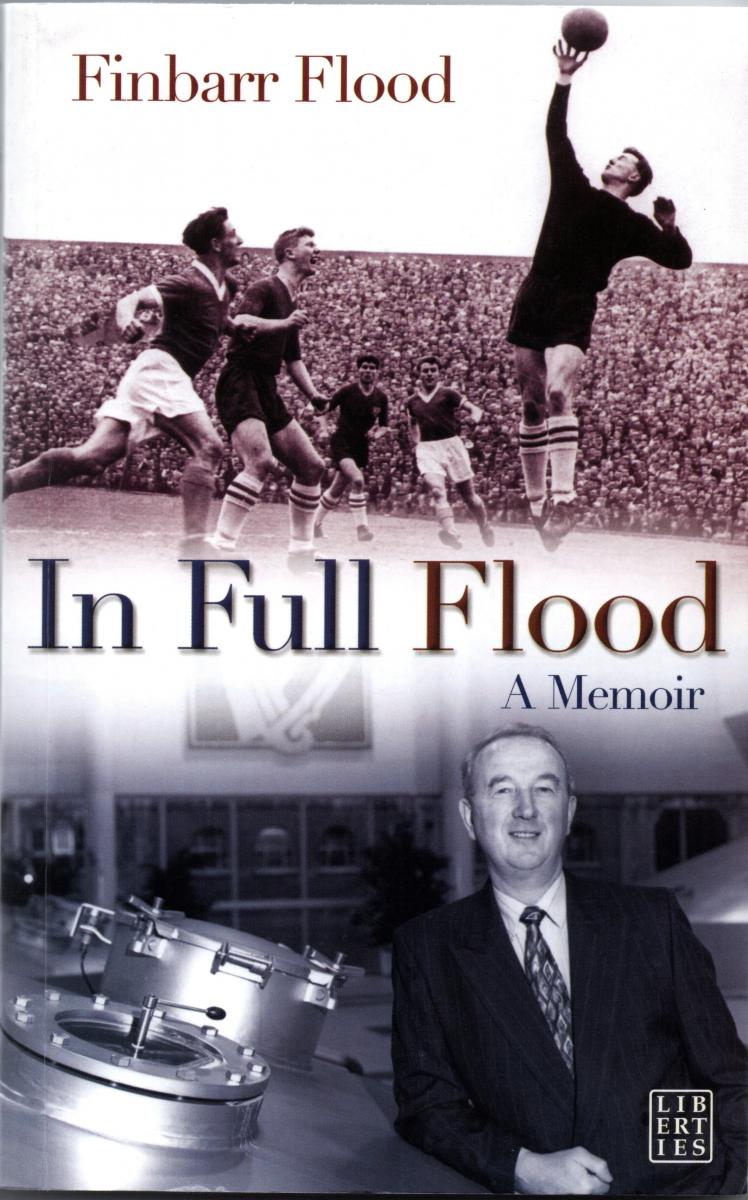
You shouldn’t have been so hard on yourself, Finbarr. In your nine games for the Glens you participated in seven victories – a good record by any standards.
Footnote: Finbarr Flood died on 24th July, 2016, aged 77. In an Irish Times obituary he was described as a man of “fantastic charisma, great presence and highly principled”. I guess we can all raise a glass of the black stuff to that accolade.
